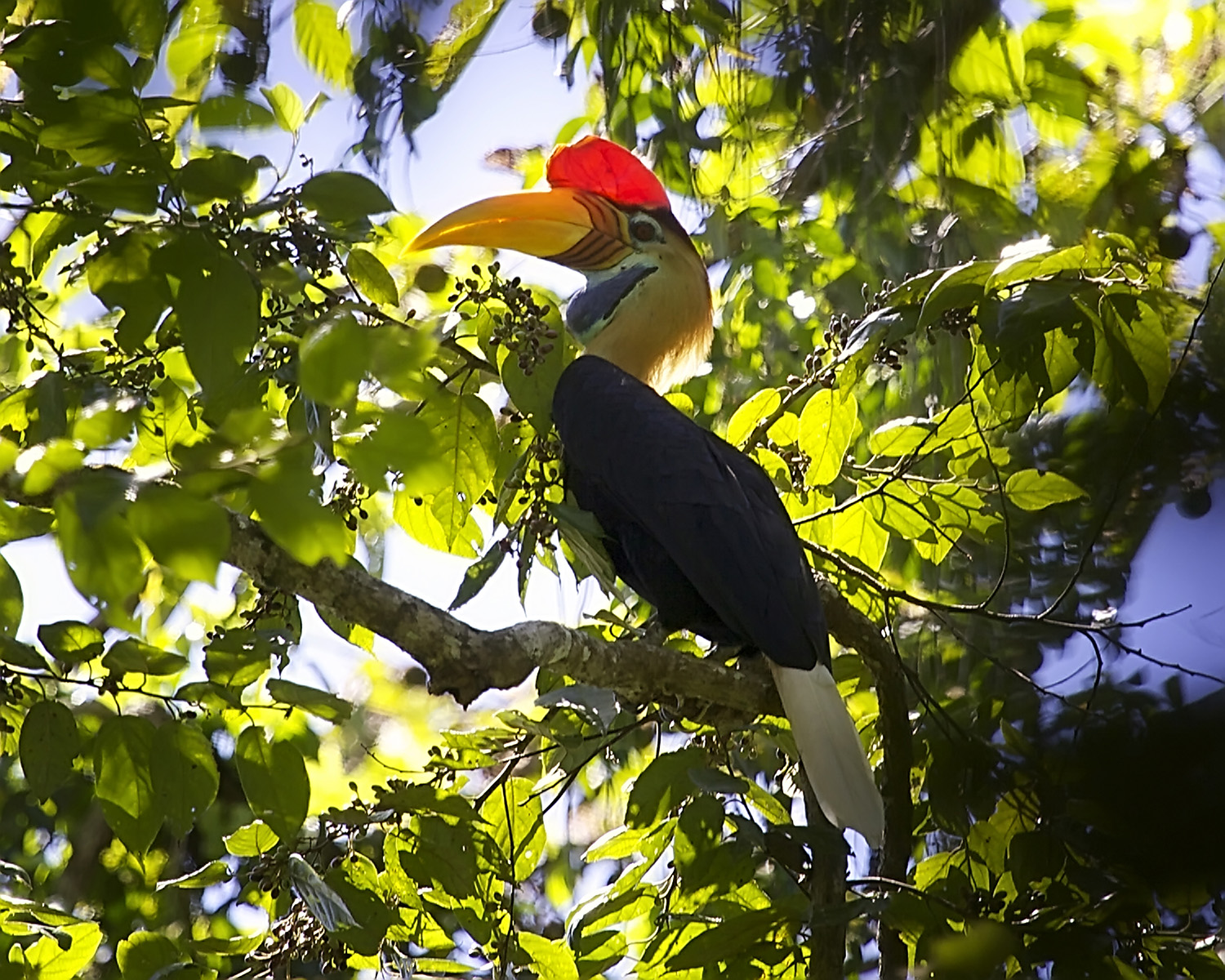A new climate action research initiative will use 5G, AI and data science to map wild plants and ancient forests on remote Indonesian islands, using experience gathered from a similar biotechnology project in the UK’s legendary Sherwood Forest.
A research team from Birmingham City University, in collaboration with the University of Tokyo in Japan and Gorontalo State University in Indonesia, will deploy cutting edge technology across the Wallacea series of islands located between Asia and Australia to record biodiversity and sources of bioenergy, and identify routes for ecological management.
The British Council-funded six month initiative is led by Associate Professors Taufiq Asyhari and Adel Aneiba at Birmingham City University, and builds on their experience delivering the Connected Forests 5G project to improve connectivity, environmentalism and tourism in the royal forest in Nottinghamshire, UK, known for its associations with the legend of Robin Hood.
The researchers will report interim findings at the UN’s Climate Change Conference of the Parties (COP26), hosted in Glasgow in early November 2021
COP26 will bring together heads of state, climate experts and campaigners to agree coordinated action to tackle climate change. As holders of the COP26 Presidency, the UK is committed to working with all countries and joining forces with civil society, companies and people on the frontline of climate change to inspire action ahead of the conference.
The project seizes the opportunities around ‘net zero’ through a newly formed international collaboration, leveraging expertise in AI-driven smart environmental know-how 5G, AI sensing, energy and process integration, and forestry plant sciences.
Project lead Associate Professor Taufiq Asyhari said, “We are thrilled to be working with international partners on this ground breaking project that sees the application of world leading digital technologies in areas of the world that are facing significant environmental challenges. The project offers a fantastic opportunity to share interim findings at COP26 in the UK and produces a powerful testament to international collaboration on the Climate Emergency.”
Named after Alfred Russell Wallace FRS, a British naturalist, explorer, geographer, anthropologist and biologist, Wallacea – in the mainly Indonesian archipelago – is known for its mega biodiversity. Wallace was best known for independently conceiving the theory of evolution through natural selection. His papers on the subject were jointly published with some of Charles Darwin’s writings in 1858, which prompted Darwin to publish On the Origin of Species.
Scaling-up Indonesian Bioenergy Potential through Assessment of Wallacea’s Plant Species: Data-Driven Energy Harvesting and Community-Centred Approach, A British Council COP26 Trilateral Research & Innovation Initiative, is one of only two one-off grants offered by UK Government in this research area.
Professor Julian Beer, Deputy Vice Chancellor at Birmingham City University said, “As the effects of climate change increase dramatically, the application of digital technologies can contribute to a more sustainable future. This work is very much in tune with our vision and longstanding commitment to social responsibility, and our tradition of harnessing entrepreneurial and knowledge leadership in digital innovation.”
Professor Hanifa Shah, Pro Vice Chancellor and Executive Dean of the Faculty of Computing, Engineering and the Built Environment at Birmingham City University said, “It is thrilling to see that our growing expertise in 5G, AI and Future Telecommunications is being recognized internationally. We believe this project will strengthen the UK’s position as a research base for producing outcomes that impact economic and social welfare in developing economies. I am pleased to see this building on the collaboration and knowledge leadership stemming from the £10m 5G Connected Forest project funded by DCMS.”


